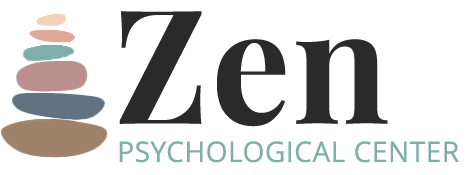Unified Treatment for Eating Disorders: A Comprehensive, Evidence-Based Approach
What is the Unified Treatment for Eating Disorders?
The Unified Treatment Model ( UTM ) is an evidence-based approach designed to address the core emotional and cognitive processes underlying eating disorders. Unlike traditional treatment methods that focus solely on food and body image, the Unified Treatment approach recognizes that eating disorders are not just about food—they are about emotions, thoughts, and behaviors.
At Zen Psychological Center, we integrate this comprehensive model to provide personalized, compassionate care for individuals struggling with anorexia, bulimia, binge-eating disorder, ARFID, and other disordered eating patterns.
How the Unified Treatment Model Works
The Unified Treatment Model focuses on addressing underlying emotional and cognitive patterns that contribute to eating disorders. This includes:
✔ Emotional Awareness & Regulation – Learning to identify, tolerate, and regulate distressing emotions without using food as a coping mechanism.
✔ Cognitive Restructuring – Challenging rigid, negative thought patterns related to food, body image, and self-worth.
✔ Behavioral Flexibility – Breaking free from compulsive behaviors and embracing a more adaptive, balanced approach to eating.
✔ Exposure & Response Prevention (ERP) – Reducing fear-based avoidance and increasing tolerance for uncertainty around food and body image.
✔ Mindful Eating & Self-Compassion – Developing a nonjudgmental relationship with food, body, and emotions.
✔ Skills-Based Approach – Utilizing CBT, DBT, and ACT techniques to foster long-term emotional resilience and recovery.
Why Choose the Unified Treatment for Eating Disorders?
Unlike traditional approaches that primarily focus on food intake and weight restoration, the Unified Treatment Model addresses the root causes of disordered eating patterns. This approach is particularly beneficial for individuals who:
✔ Experience high levels of emotional sensitivity and struggle with emotion regulation.
✔ Feel stuck in rigid thought patterns about food, weight, and self-worth.
✔ Have co-occurring conditions such as anxiety, OCD, depression, or trauma.
✔ Want a holistic, evidence-based approach that prioritizes emotional well-being alongside nutritional rehabilitation.
A Neurodiversity-Affirming Approach
At Zen Psychological Center, we understand the high co-occurrence rate many individuals with eating disorders who identify as neurodivergent (e.g., ADHD, autism, OCD). Our approach respects sensory sensitivities, cognitive processing differences, and the role of stimming in self-regulation. Instead of enforcing rigid food rules, we work collaboratively to explore safe foods, textures, and eating patterns that align with your individual needs.

